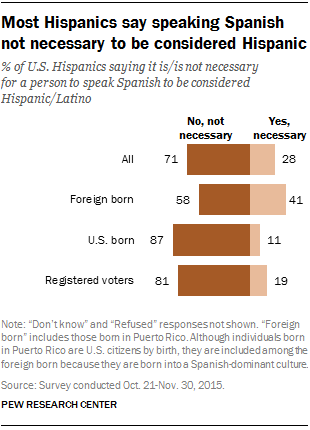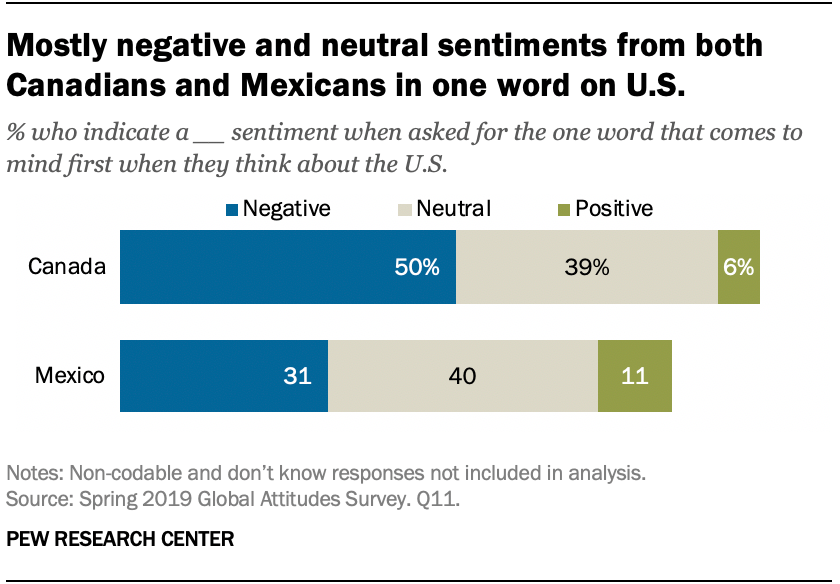In the intricate tapestry of cultural identity and language, there exists a highly sensitive and controversial topic that consistently generates heated debate: Can Mexicans say the n-word? This question is not merely about the phonetics of a word; it delves deep into historical context, the ownership of language, power dynamics, and the complexities of racial identity and appropriation. It's a discussion that has sparked intense debates across cultural and social platforms in recent years, highlighting the nuanced layers of race, culture, and history that make it a topic of great sensitivity and importance.
The Historical and Cultural Tapestry
To truly understand the depth of this debate, we must first dive into the origins and cultural significance of the terms at the heart of the discussion.
The N-Word: A Legacy of Pain and Power
The English "n-word" is undeniably one of the most historically charged and offensive slurs in the English language. Its origins are deeply rooted in the enslavement, dehumanization, and oppression of Black people in America. For centuries, it was used to inflict pain, assert racial hierarchy, and deny the humanity of African Americans. Its mere utterance can evoke generations of trauma and systemic injustice.
However, the word has also undergone a complex process of linguistic reappropriation within the African American community. In an instance of linguistic reappropriation, the term "nigger" is also used casually and fraternally among African Americans, most commonly in the form "nigga." This internal usage often serves to strip the word of its power as a slur when used by outsiders, transforming it into a term of endearment, solidarity, or even a neutral filler word among peers. This reappropriation is a powerful act of reclaiming agency over a word that was once used to subjugate.
"Negrito/a": A Different Linguistic Path?
Parallel to this, the Spanish language has its own related terms, particularly "negrito" or "negrita," which are diminutives of "negro" (black). Many Latinx individuals have grown up hearing someone be called "negrita" or "negrito" within their families and communities. For some, these terms are used as genuine terms of endearment, often affectionately describing someone with darker skin, or even as a general term of endearment regardless of skin tone, similar to "sweetie" or "dear."
However, this Spanish term, a diminutive of "black," also stirs debate. Critics argue that while the intent might be affectionate, its historical connection to a racial descriptor, even if softened by a diminutive, can still carry a legacy of a racist past, especially when viewed through the lens of colorism within Latin American societies. The question arises: can a term with such a direct link to race truly be devoid of historical baggage, even when used affectionately?
The Debate: Why the Controversy?
The core of the debate surrounding Mexicans using the English "n-word" lies in the intersection of these linguistic histories and cultural contexts. It raises a significant debate within communities, particularly surrounding issues of race and identity.
Arguments for Usage: Context, Reappropriation, and Freedom of Speech
Proponents who argue that Mexicans can or should be able to use the word often emphasize context and intention. They contend that there is nothing inherently wrong with using the word itself; rather, "it's what you make of it that makes it good or bad." This perspective suggests that if the word is used without malice, as part of a rational discussion about a topic (perhaps an old book or anything from that time era), it can be totally fine. For many Latinx individuals, including family and friends I know, they have used the word their whole lives and still use it daily. For many of them, especially those who have grown up in diverse urban environments like New York City, they believe they have a right to use the word, often seeing themselves as part of a broader cultural landscape where such language is common.
A strong argument from this side is the belief that "everybody should be able to use the n-word." Some even go further, stating, "Telling someone they can’t say a word because of their skin color is racist." This viewpoint posits that "whatever your skin color is, you don’t get to tell people what they can and can’t say based on the color of their skin. It’s automatically racist for anyone to tell someone they can’t do or say something based on the color of their skin." This perspective frames the restriction of language based on race as a form of discrimination itself, advocating for a universal freedom of speech that transcends racial boundaries.
Arguments Against Usage: Ownership, Appropriation, and Historical Harm
Conversely, those who argue against Mexicans using the n-word emphasize the historical context, the ownership of language, and the potential for appropriation and harm. They contend that despite reappropriation within the Black community, the word's power to wound remains immense when used by those outside that community. The argument is that the word's painful history and its role in systemic oppression mean that only those who have been historically targeted by it have the moral authority to reclaim or use it, especially in its reappropriated form.
This perspective highlights that even if a Mexican individual does not intend to cause harm, their use of the word can still perpetuate harm or disrespect because they do not share the same historical experience of racial subjugation directly tied to that specific slur. It raises questions about power dynamics and the potential for cultural appropriation, where elements of a marginalized group's culture (including reappropriated language) are adopted by those outside the group, often without understanding or respecting the original context and pain.
Navigating the Nuances: Understanding Different Perspectives
The debate is further complicated by the diverse experiences within the Mexican and broader Latinx communities themselves. Mexico, like many Latin American countries, has its own complex history with race, colonialism, and indigenous populations, which doesn't always align neatly with the Black-white racial dynamics prevalent in the U.S. However, the English n-word specifically targets the Black experience in America, making its usage by non-Black individuals, regardless of their own ethnic background, a contentious issue.
The Role of Identity and Upbringing
As noted, many Latinx individuals, particularly those who have grown up in highly diverse environments like New York City, might feel a cultural proximity to African American communities and thus believe their usage of the word is acceptable. Their lived experiences might lead them to believe they are part of an inclusive cultural space where such language is shared. However, this perspective often clashes with the views of many Black individuals who maintain that shared cultural space does not equate to shared racial trauma or the right to use a word born from that trauma.
The "Güey" Analogy: A Glimpse into Cultural Language Use
To illustrate the concept of in-group language, it is common to hear Mexicans say ‘güey’ at the end of a sentence when talking to friends or those of the same status. "Güey" (or "wey") is a versatile slang term, often used similarly to "dude" or "man" among peers. Its usage signifies familiarity and informality within a specific cultural context. While "güey" is an example of a word whose meaning and acceptance are entirely dependent on context and relationship within a community, it serves as a stark contrast to the n-word. The n-word carries a historical weight of oppression that transcends mere informal communication; its reappropriation is a specific act of resistance by a historically targeted group, not a general invitation for all to use it.
Conclusion: Towards a More Nuanced Understanding
The question of whether Mexicans can say the n-word continues to spark heated debates, and the answer is far from simple or clear-cut for everyone involved. This sensitive topic delves into fundamental questions of race, identity, and historical context. It highlights the complexities of linguistic ownership, the impact of historical trauma, and the challenges of navigating diverse cultural landscapes.
Ultimately, understanding cultural nuances and context is crucial. While some argue for universal freedom of speech and the importance of intention, others emphasize the indelible mark of history and the right of a historically oppressed group to define the boundaries of a word used to subjugate them. The ongoing discussion surrounding this phrase, laden with historical significance and cultural sensitivity, raises questions about race, power dynamics, and appropriation that demand thoughtful consideration and empathetic dialogue from all sides.
Final Summary: The debate surrounding whether Mexicans can say the n-word is a complex issue rooted in historical context, racial identity, and linguistic appropriation. Arguments for usage often cite intent, personal upbringing in diverse environments, and a belief in universal freedom of speech, sometimes drawing parallels to internal community slang like "güey." Conversely, arguments against usage emphasize the word's origins in Black enslavement and oppression, asserting that only the historically targeted community has the right to reclaim or use it, and that non-Black usage, even without malicious intent, can constitute appropriation and perpetuate harm. This ongoing discussion underscores the critical need for understanding the profound historical weight of language and respecting the boundaries set by communities most affected by its usage.



Detail Author:
- Name : Halie Crooks
- Username : treva15
- Email : hand.ferne@hotmail.com
- Birthdate : 1974-12-27
- Address : 619 Maurine Ports Apt. 506 Anastasiamouth, NM 28829
- Phone : +1-678-786-6064
- Company : Hackett Group
- Job : Medical Records Technician
- Bio : Dignissimos possimus voluptatem beatae eum cum asperiores. Unde sit fugit illo quos nihil. Maxime natus excepturi aliquam corporis. Eligendi suscipit aut sapiente voluptas.
Socials
instagram:
- url : https://instagram.com/thalia_mcglynn
- username : thalia_mcglynn
- bio : Laborum sit rerum quia qui voluptas. Rem sequi alias quos aut non quasi.
- followers : 3940
- following : 2761
tiktok:
- url : https://tiktok.com/@mcglynnt
- username : mcglynnt
- bio : Nostrum laborum dolore molestiae ducimus.
- followers : 3111
- following : 60
linkedin:
- url : https://linkedin.com/in/thalia_id
- username : thalia_id
- bio : Ut ipsam neque qui et et molestiae molestiae nam.
- followers : 6907
- following : 2315